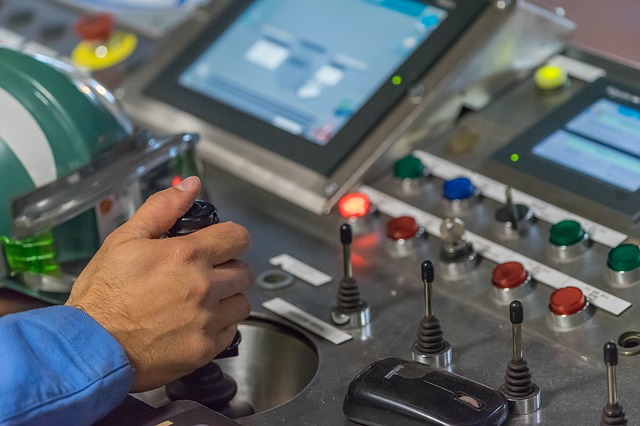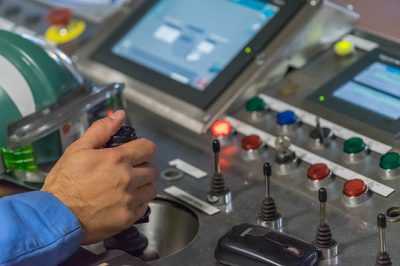- August 18, 2021
- Posted by: David Marshall
- Category: Manufacturing, Productivity

Automation is changing the face of manufacturing. It may be taking away some of the low-paying jobs, but it’s also taking people away from the heavy, backbreaking work on the floor. It’s giving people new opportunities to do much easier work and to even learn new skills and gain new knowledge. That leads to higher-paying and safer jobs for them.
Automation also makes your products more reliable for your customers, and that’s who you really serve. You don’t serve your associates, you serve the customer, but you serve them through the associates. This means your associates should not be expendable, and that you actually need to keep them happy.
Happy workers mean happy customers
We’ve come out of the age, I hope, where factory workers were considered expendable, just cogs in a machine. In those days, managers weren’t worried about keeping workers happy because they could be easily replaced. The work was mindless, didn’t require a lot of creativity, and you could replace one wrench turner with another because people needed the work.
 As the work got more complicated and the machines began taking over the mindless, repetitive tasks, factory owners thought they could replace their workers with robots. What they found is that the robots couldn’t do everything, and if anything, they needed workers with higher skills and abilities to handle the new technical workloads. That meant paying workers more because they were harder to replace.
As the work got more complicated and the machines began taking over the mindless, repetitive tasks, factory owners thought they could replace their workers with robots. What they found is that the robots couldn’t do everything, and if anything, they needed workers with higher skills and abilities to handle the new technical workloads. That meant paying workers more because they were harder to replace.
Now, more sophisticated machines are replacing those jobs, but these new machines require highly technical skills and knowledge. That means the workers who remain have a much easier time of things than they did 50 – 75 years ago, and factory owners know they need to keep their workers happy if they want to keep their production levels up. More importantly, those associates are easily making six-figure salaries because they have highly technical skills.
By giving their associates extra skills training and more opportunities for advancement and to make more money, factory owners are realizing that what they’re also getting are happier customers.
Customers are happy because their products are well-made. They’re filing fewer complaints, demanding fewer refunds, and returning fewer defects. They’re buying more, spending more money, and increasing profits.
What the factory owners failed to realize 50 – 75 years ago was that unhappy workers built bad products, which led to unhappy customers. It’s only been in the last 10 – 15 years that we’ve seen manufacturing managers make the connection between happy workers and happy customers.
When I led Robroy, we made sure our associates knew we appreciated them. We held appreciation dinners, provided annual physicals and checkups for them and their families, and I made sure to speak to each person in the operation as often as I could. By doing this, we were able to not only make our customers happy, but we also made Robroy one of the leaders of its industry and a respected name among all our customers and competitors.
All because we worked to make our associates happy, even as we pursued a more automated manufacturing process.
I’ve been a manufacturing executive, as well as a sales and marketing professional, for a few decades. Now I help companies turn around their own business, including pivoting within their industry. If you would like more information, please visit my website and connect with me on Twitter, Facebook, or LinkedIn.
Photo credit: Martinelle (Pixabay, Creative Commons 0)

